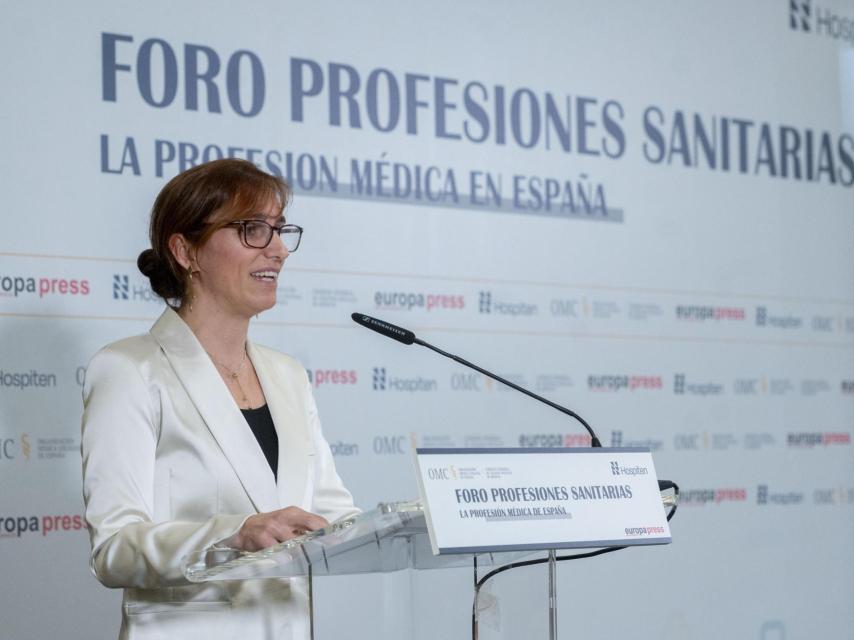Spain has dangerously normalized health delays.
We have been talking about waiting lists for years as if they were some kind of inevitable atmospheric phenomenon. But what has happened in recent weeks with breast cancer screening in Andalusia has uncovered an even more disturbing crack that almost no one talked about, even if it could be intuited: the wait to be informed of the result of the test you have already had.
The invisible wait.
The degree of anesthesia reaches such a point that, for example, the Department of Health of the Valencian Community announced publicly a few days ago (and proudly) that it was committed to delivering breast cancer screening reports in less than thirty days.
Thirty days to report on a test that took you months to complete. As if we were facing an unattainable achievement.
As if promising to tell you the result in a month was a reasonable standard of quality care.
To put ourselves in a real context, it is enough to remember that according to the Health Results report, the RESA report, from the IDIS Foundation, the average time for the delivery of reports after performing a complementary radiology test in the private sector is around three days.
And I do not believe that the machines are less full than in the public sector nor that the ratio of professionals per machine is higher in the private sector than in the public sector.
On the contrary, in fact.
In any case, this must be the tip of the iceberg. Because, when this situation was revealed, other communities have announced that they are going to strengthen control of screening for screening of the only three types of cancer that occur in our public health system: breast, colon and cervix.
Today, official data from the Ministry of Health says that a Spanish patient waits on average one hundred and five days to be seen for the first time by a specialist after being referred from their primary care doctor.
“We are talking about almost ten months (sometimes more than a year) for a patient to reach a definitive, accurate diagnosis that allows them to start their treatment”
But the reality does not end there.
Because, after that initial consultation, you wait between two and six more months to undergo the diagnostic tests that the specialist requests.
After what we saw in Andalusia, we now know that up to ninety additional days can be added to this so that someone can simply inform you about these tests.
Let’s add: one hundred five days + one hundred twenty days + ninety days.
We are talking, if everything is fine and no further healthcare interactions are necessary, of almost ten months (and in many areas, more than a year) for a patient to reach a definitive, accurate diagnosis that allows them to begin their treatment.
In many cancers, that is the objective difference between treating on time and being late.
And the hardest thing is not the number. It is the social reaction: zero commotion.
Zero urgency.
Zero alarm, except to demand more money for public health without asking for any results in return, of course.
Or to cry out against the ghost of aid that the private sector can provide under the excuse of the “privatization” of the system.
In fact, while this is happening, the public conversation is going in other directions.

Mónica García, Minister of Health, at the Medical Profession Forum.
This same week we have seen a corporatist confrontation between the Councils of Doctors, Nursing and Dentists to see who can or cannot inject Botox.
To the unions announcing strikes for December as a pressure tactic on the Ministry of Health, at the expense of patients, whose organizations react with infinite condescension.
We have also seen the reappearance political debates on abortion and on supposed ideological records of professionals.
Sorry, but this is dystopian. Because, furthermore, we continue to pretend that all this is inevitable. As if there were no solutions already available and deployable.
As if continuing to wait was the only realistic option.
And no, it is not.
Because, while public hospitals are drowning, private healthcare in Spain has diagnostic capacity available today, here and now, with radiologists who report between 24 and 72 hours later, with operating rooms, with technology, and with perfectly approved and audited specialists.
“If there really was a serious AI strategy, today we could reduce radiological reading times by 60-70% and prioritize suspicious cases”
And the paradox is that many administrations voluntarily renounce hiring that support out of pure ideological fear. Because of the social noise. Although the Constitution, the General Health Law and all regulations expressly enable them to do so.
In fact, while in some autonomous communities close to the PP they do not even want to hear about the issue they are talking about, in those governed by the PSOE they have no qualms about using private resources for the screening or for whatever is necessary.
And then there’s the other big magical buzzword: Artificial Intelligence.
A term that is solemnly pronounced at every press conference, but that in practice is not being implemented where it would have the most impact: in the intelligent triage of diagnostic tests, in algorithmic clinical prioritization, in the assisted reading of mammograms, in the automated detection of suspicious nodes that is already standard in other advanced health systems and that, although it does not yet reach the ideal levels of precision (there are a lot of resistance to change) something could contribute to the infinite waits.
If there really were a serious AI strategy for these cases, today we could reduce radiological reading times by 60-70% and automatically prioritize suspicious cases.
Also to allow the specialist to validate (not read from scratch) those alerts.
But instead what is proposed is to “hire hundreds of radiologists” who simply do not exist.

Juan Manuel Moreno Bonilla, president of the Junta de Andalucía, at the opening of the V Spanish Economic Forum in Andalusia.
The citizen does not know if there is more or less supply. It only wants real guaranteed maximum times, as is already the case in many European countries. Here we continue measuring “people on the list”, not actual diagnosis-treatment time.
And what is not measured well is not governed well.
Until we measure from when the problem is detected to when treatment begins, we will continue to tell a collectively accepted statistical lie.
All this could be done now, without waiting any longer.
And then why isn’t it done?
Because this country has turned the health debate into a permanent ideological and union ritual where any proposal that involves efficiency, outsourcing or clinical prioritization based on data is suspected (because it goes against the most inefficient management model that exists, the Framework Statute).
And because, let’s be honest, most parties have come to the conclusion that waiting does not penalize electorally. Nobody goes out to protest because they receive a diagnosis three months late. The wait is silent. And the silent does not give votes or headlines.
I don’t want to close by calling for epic or apocalypse. I prefer to leave the question that really matters.
Spain does not have a problem of impossible resources, nor of inaccessible technology, nor of laws that prevent doing what should be done.
You have a real willingness problem to use what you already have (or what would be within your reach).
And he has a problem of lack of political courage to confront those who only want everything to work as it has until now, at whatever price.
So the question is not if it can be done, because it could be done tomorrow.
The urgent question in Spain is not who can inject Botox or not. Which by the way, whoever knows should do it, because it is a minor matter.
The urgent question is How many people are going to die from reaching their diagnosis too late while we continue debating the irrelevant?
*** Juan Abarca is president of HM Hospitales.
The post An anesthetized society appeared first on Veritas News.
